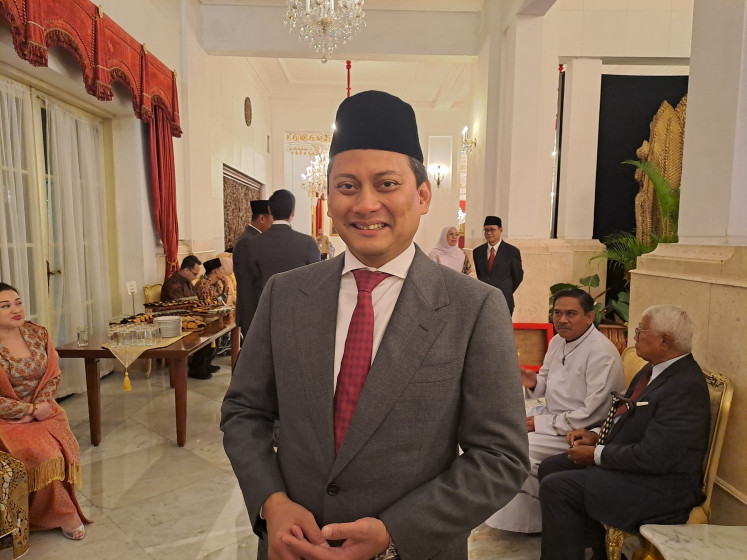Popular Reads
Top Results
Can't find what you're looking for?
View all search resultsPopular Reads
Top Results
Can't find what you're looking for?
View all search resultsThe role of academics in oceanic affairs
Oceanic affairs and the law of the sea are by no means easy issues, despite their higher visibility nowadays
Change text size
Gift Premium Articles
to Anyone
O
ceanic affairs and the law of the sea are by no means easy issues, despite their higher visibility nowadays. Intensive research and serious debate are required to back up good policies.
Here is where the role of academia is vital. There are at least five roles that academia can play as positive contributions toward the development of these issues.
First and foremost is conducting intensive research on ocean affairs and the law of the sea, including maritime issues. Intensive research should be the main source of good and critical consideration when it comes to the formulation of government policies.
Intensive research will also allow a better understanding of ocean affairs and the law of the sea, for it is based on a scientific approach, rather than merely issues, myths or incidental occurrence.
More research funding and a conducive policy environment is needed. Through the merger of higher education and research and technology into one ministry, research should gain better attention from the government.
This is the best time to wisely allocate part of the 20 percent of the national budget to research in oceanic affairs and the law of the sea, be it the legal, technical or political aspects.
Secondly, academia must continue its work in teaching and publication. In Indonesia, young people need to understand oceanic issues from an early age and academia should take part in this teaching, based on quality research.
Publication of quality materials on such issues are also lacking ' compared with those along the lines of 'how to get rich in 30 days'.
Publication in peer-reviewed journals, for example, is certainly something that academia should aim for.
However, popular publications should not be forgotten or ignored; remember that research is funded by taxpayers' money.
Thirdly, researchers should bring their studies down to earth through community services. Only a limited number of studies offer practical solutions for society.
Due to limited interaction and communication, communities also often fail to effectively communicate their needs to universities.
By sending students and researchers to coastal villages needing practical solutions for their fishery activities, for instance, better understanding of the needs of the community would be gained.
With this understanding, researchers can design their research roadmap better, to address real problems faced by the community.
Fourth, it is always critical for researchers to consider the possibility of downstreaming their research into commercialized products.
Research on fisheries, for example, should eventually aim at adding economic value to fisheries to improve the prosperity of fishing communities.
Promoting sustainable fisheries management, for example, without properly considering the economic life of fishermen, can be counterproductive.
Flowery words in a policy document will mean nothing if fishing families cannot send their children to school or university, for example. In short, researchers should always keep in mind what their research can do for society.
Lastly, researchers need to realize that officials and especially the general public often think that academics speak an alien language when explaining their research.
Therefore, researchers need to train themselves to write short policy briefs for officials. Without that skill, good research findings are likely to end up on dusty shelves in a forgotten room at a ministerial office.
A number of academics have apparently realized the aforementioned lack of contribution.
On March 12, a number of academics gathered at Bung Hatta University in Padang, West Sumatra, to establish the Indian Ocean Academic Forum.
I was involved in the process and am happy to be part of the forum. It is expected that this forum will be able to contribute significantly to discourse on oceanic affairs and the law of the sea in Indonesia.
Whether this forum will serve its purpose remains to be seen.
___________________
The writer is a lecturer at the Department of Geodetic Engineering, Gadjah Mada University in Yogyakarta, and is the public relations officer of the Indian Ocean Academic Forum. The views expressed are his own.










